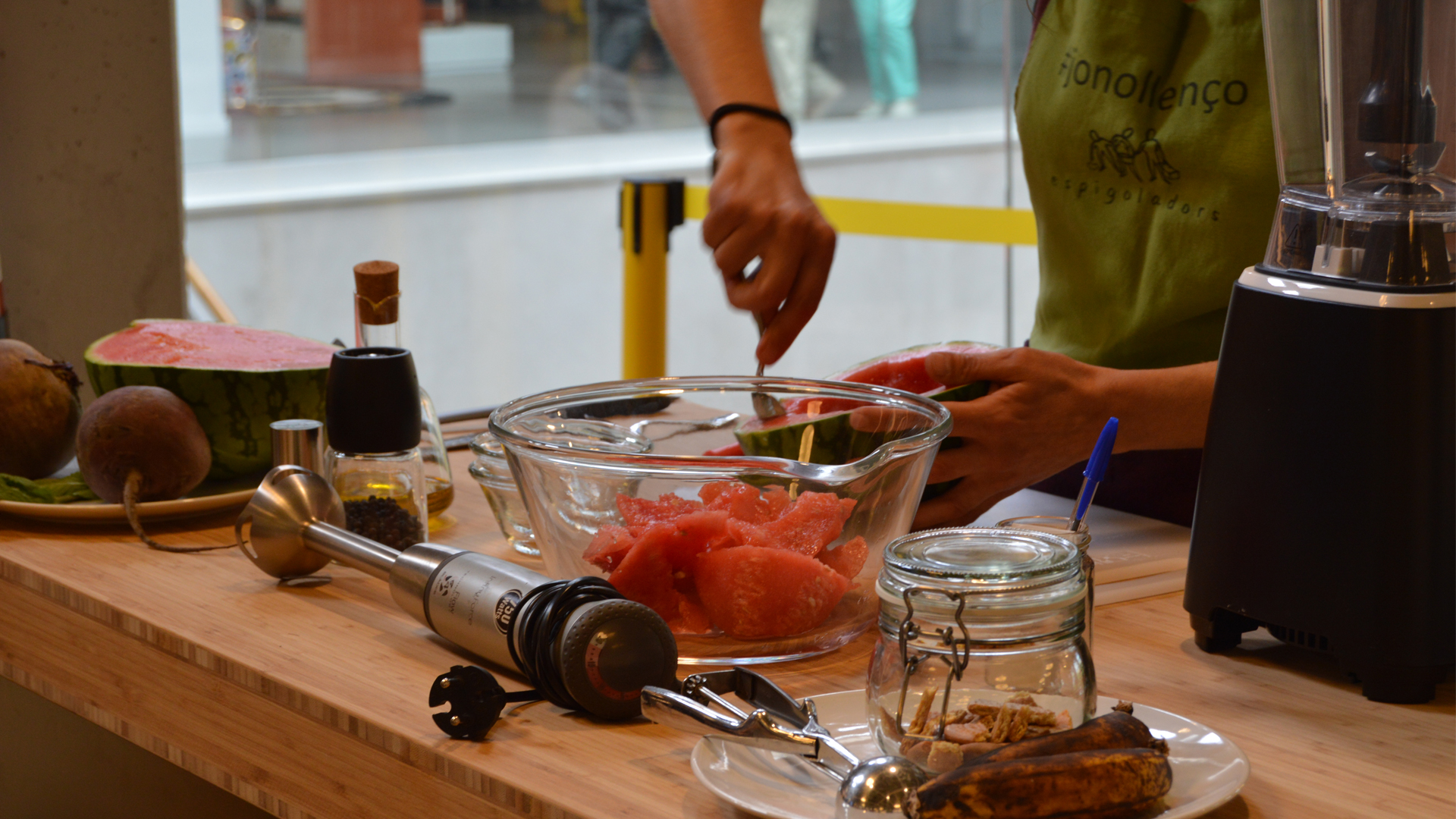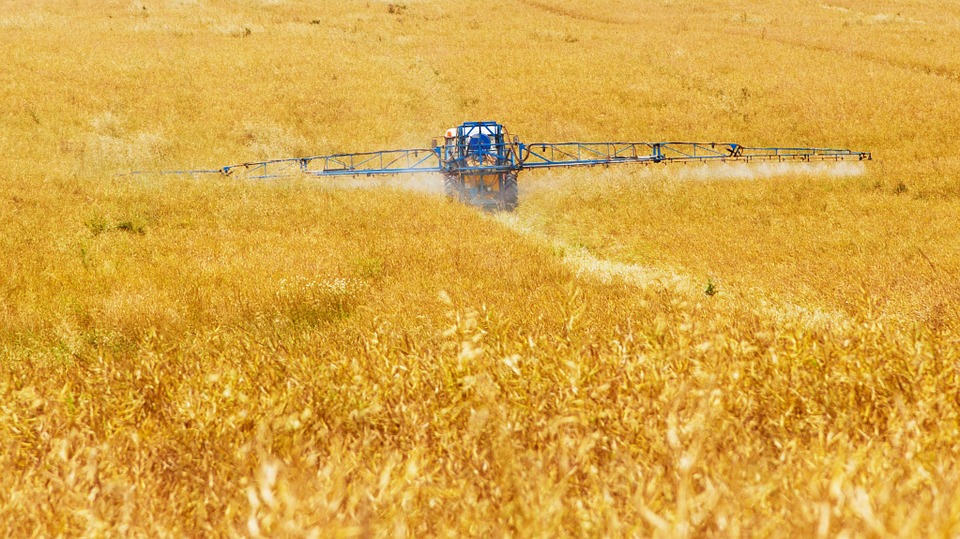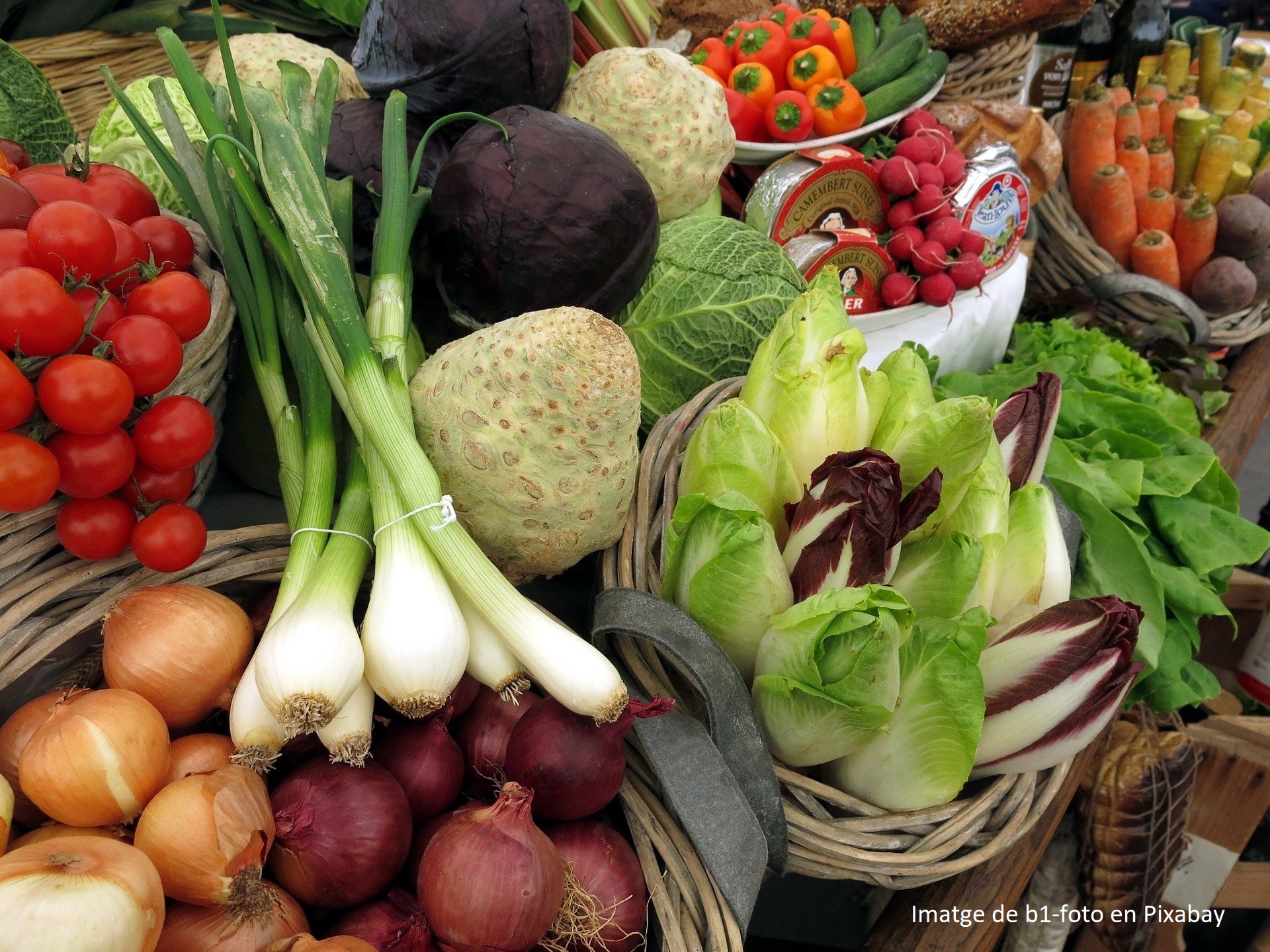In this programme you will find practical ways for moving towards a diet that includes habits which improve quality of life for ourselves and the people around us.
You learn how this affects our decisions, how we choose what we buy and where we buy it, all in a cheerful, fun and creative way.
We discover how to improve our surroundings and our inner selves, in order to feel full of life.
Our food choices have an impact on the environment; we review various diets (carnivorous, omnivorous and vegetarian) and finally focus on the plant-based diet.
Sustainable Food Citizen Week
Video resum de la Setmana Ciutadana de l'Alimentació Sostenible 2021
The activities of the Sustainable Food Citizen Week
Sustainable Food Citizen Week provides an opportunity to understand the relationship between food habits and cross-cutting aspects such as the climate emergency, local economic development, culture, politics, social rights and health. A week dedicated to citizens, in which you will achieve knowledge, reflection and debate about the main issues of the following activities.
Gastronomic heritage
- October 18th - 18.00 HBetevé broadcastingTelevised cooking workshop
- October 19th - 18.00 HBetevé broadcastingTelevised cooking workshop
How can you adapt sustainable food to healthy living?
Batch cooking consists in cooking for the whole family and investing a little time so you can make nutritious everyday meals, at home and for your lunch box.
BREAKFAST: habits as simple as a good glass of water, with sea water and lemon. Breakfasts such as shakes or smoothies, which you can warm up in winter. You will discover recipes such as rice pudding and pear, quality-bread sandwiches and an omelette made from organic eggs.
LUNCH: important notions on how to structure a dish with different groups of foods. A dish is not the same for a teenager as a middle-aged person. You can cook the same for all the family but put in what each person needs. You should always add vegetables in season, wholemeal carbohydrates, some raw vegetables, sprouted and fermented foods, etc. You will discover recipes such as baked pumpkin with curry; lentils cooked with adobo, sprouted ... and seeds; chickpeas with prawns; wholemeal rice with mushrooms; and lettuce head salad with carrot, olives and chopped chives. Wholemeal pasta with courgettes, mushrooms, squid with carrot and beetroot.
EVENING MEAL: an evening meal or supper should be light and eaten as early as possible. You will discover recipes such as pumpkin, sweet potato and oatmeal soup; vegetable pudding with carrot and broccoli; fish soup with noodles, and grilled fish in a sauce.
- October 20th - 18.00 HBetevé broadcastingTelevised cooking workshop
Getting children away from processed food as much as possible.
At home, we can organise menus very quickly, using fresh and seasonal local produce.
Not forgetting breakfasts and snacks and their natural desire for sweet food; we offer some great solutions.
Waste vs Good use
- October 22nd - 18.00 HBetevé broadcastingTelevised cooking workshop
A chef and an expert in better food use provide advice and useful tips for making the best use of food in cooking. Using the preparation of various recipes as a common thread, the programme introduces concepts that show the importance of sustainable, healthy food and ideas that help to prevent food waste, through everyday consumer and cooking habits.
Urban rurality and biodiversity
- October 21st - 17.30 HBiblioteca Joan MiróVisit / Tour
A walk for discovering the many wild plants we have close to home that we were unfamiliar with and the varied possible uses of which we could never have imagined. We’ll learn how to identify them, we’ll smell and taste them and discover the uses each of the species has inside and outside the kitchen.
- October 22nd - 17.30 HPlaça Lesseps (sortida metro)Visit / Tour
A walk for discovering the many wild plants we have close to home that we were unfamiliar with and the varied possible uses of which we could never have imagined. We’ll learn how to identify them, we’ll smell and taste them and discover the uses each of the species has inside and outside the kitchen.
- October 23th - 10.00 HEstació Carretera de les Aigües- Funicular de VallvidreraVisit / Tour
A walk for discovering the many wild plants we have close to home that we were unfamiliar with and the varied possible uses of which we could never have imagined. We’ll learn how to identify them, we’ll smell and taste them and discover the uses each of the species has inside and outside the kitchen.
Ecological footprint
- October 17th - 13.00 HPlaça del ReiTalk
Talk looking at all the most common stages of the life cycle of our food. From the farm to the table, we’ll be pondering the carbon footprint of agriculture, packaging, logistics, cooking, organic waste etc. The overall goal is to provide information for deciding on food which has a lower impact in terms of greenhouse gas emissions. The session will also stress the contradictions in environmental communication for consumers.
- 17th October 13.30 hPlaça del ReiTalk
What are the impacts of our food system on our planet? How does this affect the peasantry, our territory and the communities of the global south? What role does the food industry play? What can we do as consumers? What is the role and situation of women, who have traditionally fed the world? On all these issues, we offer you an exciting dialogue with Vandana Shiva (Indian climate activist, graduate in physics, philosopher, ecologist, feminist and author of more than twenty books and 300 articles in the world's most prestigious scientific journals) and Esther Vivas ( activist, researcher in social movements and agricultural and food policies, degree in journalism and diploma in higher studies in sociology from the Autonomous University of Barcelona).
- October 17th - 17.30 HPlaça del ReiRound table
The current industrial agri-food system generates a series of environmental conflicts that are manifested through struggles and mobilisations in response to the impact this system has on the environment and society. These conflicts are mainly associated with the defence of environmental conditions or equal access and distribution of natural resources, often occurring in production and transit areas, and ultimately affecting the regions and communities where they happen. They often reveal conflicting interests, different development paradigms, and aspects related to involvement in decision-making.
The aim of this roundtable is to address some of the main current socio-environmental conflicts in Catalonia, arising from the food system, and to understand the causes and impacts both in Catalonia and the Global South, in order to make them visible, encourage dialogue and provide possible solutions or alternatives.
Proximity
- October 17th - 16.00 HParc de la BarcelonetaShow
This show reflects the result of the last fifteen years this quintet's career, in which they have further explored their own style using organic, natural instruments with a grass-roots and contemporary language.
The concert revolves around organic instruments made from materials found in nature. Once they have been crafted, respecting the natural material, they generate melodies with a unique sound.
The stars of the show are the oak-wood and slate txalapartas, percussion instruments using wood from the desert and pipes. We will also hear a clarinet made from bamboo, whose sound creates atmospheric base lines that enhance the other instruments.
- October 17th - 17.30 HParc de la BarcelonetaRound table
Challenges and opportunities for multiplying and consolidating transformational food networks
There has been a significant increase in initiatives, over the last few years, which attempt to facilitate and ensure widespread access to organic and local food, taking the needs of the area's farmers into account. Central purchasing bodies, farmers’ distribution networks and new consumption cooperatives with shops (also known as cooperative supermarkets) are just a few examples of these.
The main goal of these projects is to provide a greater diversity of consumer profiles with access to these types of products. To do that, they aim to overcome the obstacles that prices and physical accessibility represent. They also aim to help improve the viability of the initiatives of farmers who work with agro-ecological values and practices.The aim of the session is to discover various types of initiatives for distributing organic and local food and to reflect on what the key elements are that can help to multiply and consolidate transformational food networks. Taking part in this will be members of Germinando involved in GIASAT (Gestión Integral Agroecológica de los Sistemas Alimentarios Territorializados), VallaEcolid, the Barcelona Local Agri-Food Exchange Centre (CIAP), promoted by the Farmers’ Union, and the Quèviure and Economat Social cooperatives.
- October 17th - 20.00 HParc de la BarcelonetaScreening
Sixty years of standardised fruit and vegetable production and the creation of industrial hybrids have had a dramatic impact on their nutritional content. In the last 50 years, they have lost 27% of their vitamin C and almost half their iron. The tomato, for example: through multiple hybridisations, scientists are constantly producing redder, smoother, and firmer fruits. In the process, however, a quarter of the calcium and more than half of the vitamins have been lost.
The seeds that give rise to the fruits and vegetables we eat are now owned by a handful of multinationals, such as Bayer and Dow-Dupont. These multinationals produce their seeds mainly in India, where workers earn just a few rupees, while the company has a turnover of more than 2 billion euros. A globalised business where seeds are more expensive than gold. According to the FAO, 75% of cultivated varieties have disappeared in the last 100 years.
Loss of nutrients, privatization of life. This documentary presents the great monopoly of the industry on our fruits and vegetables.
More week
- October 15th from 16.00 to 17.30 HEspai Consum ResponsableTalk, Exhibition
An activity aimed at raising public awareness of the resources used in food production, in order to show the importance of avoiding food waste due to the losses it generates.
- October 15th from 17.00 to 19.00 HCETT-UBCulinary experience
Presentation of the #CookOnceEatTwice campaign, with a view to sharing recipes and tips for getting the most out of your ingredients as a way of contributing to sustainable eating at home. The event will include a showcooking demonstration by the CETT-UB, where some of the recipes included in the campaign will be prepared.
La Fundació Espigoladors will be taking take part, with a question and answer game on making the most of food. - October 15th from 18.00 to 19.00 HVideoconferenceOnline
In this 60-minute talk we explain the pros and cons of using packaging for the retail sale of fruit and veg, and you’ll see that, in some cases,not only does it not represent an improvement in terms of food safety, but quite the reverse.





















